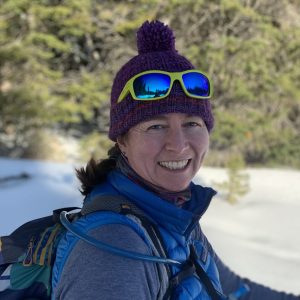

The North American Invasive Species Management Association (NAISMA) supports the inclusion of the impacts and influence of invasive species in climate change legislation, policy, management, and research. The reverse is also important; the impacts and influence of climate change must be incorporated into invasive species management and policy. This webinar will provide an overview of the intersection of invasive species and climate change and will also take an in-depth look at the topics of carbon sequestration and the nexus between invasives, climate, and wildfire.
Agenda:
See the NISAW policy page on climate change and invasive species.
Speaker Bios:
Carrie Brown Lima
Carrie Brown-Lima is the Director of the NY Invasive Species Research Institute at Cornell University. In this role, she works closely with research scientists, state and federal agencies, the NY Invasive Species Council and Advisory Committee and regional managers and stakeholders to promote innovation and improve the scientific basis of invasive species management. Carrie has nearly 25 years of experience with natural resource conservation and management across ecosystems and borders. She spent more than a decade developing conservation strategies in Brazil and throughout Latin America including programs such as sustainable fisheries certifications, agriculture and conservation, and transboundary protected areas.

Brendan Quirion
For the past decade, Brendan worked for the Nature Conservancy’s award-winning Adirondack Park Invasive Plant Program; first as Terrestrial Project Coordinator and then as Program Director. Through this experience he developed a keen interest in evaluating whether commonly applied natural resource management practices sufficiently meet ecological and societal objectives. In fall 2019, he transitioned to Cornell University to advance research related to promoting improved outcomes and accountability in invasive species and white-tailed deer management.

Leigh Greenwood
Leigh Greenwood has worked for The Nature Conservancy since December 2007. Her work focuses on bringing multiple stakeholders together to achieve common goals in Forest Health, including: managing the Don’t Move Firewood campaign, convening the Continental Dialogue on Non-native Forest Insects and Diseases, and working to improve the international biosecurity measures in place for solid wood packaging. Leigh’s leadership of the Don’t Move Firewood campaign has led to its being widely regarded as one of the most innovative public outreach arms of The Nature Conservancy. Leigh earned her B.A. in Biology at Williams College and her M.S. in Wildlife Biology at the University of Montana in Missoula, where she studied the intersection of native wildlife and invasive plants.

Dr. Emily Fusco
Dr. Emily Fusco is an ORISE Fellow with the USDA Forest Service Pacific Northwest Research Station, USDA Northwest Climate Hub, and the Western Wildland Environmental Threat Assessment Center. Her research is focused on invasive species and fire, and in her current role she works to connect science with management through science synthesis, original research, and coordination efforts. Emily earned her PhD in Organismic and Evolutionary Biology from the University of Massachusetts Amherst and her BA in Environmental Studies from the University of North Carolina Wilmington. She is involved in the Northeast, North Central and Northwest Regional Invasive Species and Climate Change (RISCC) networks.
